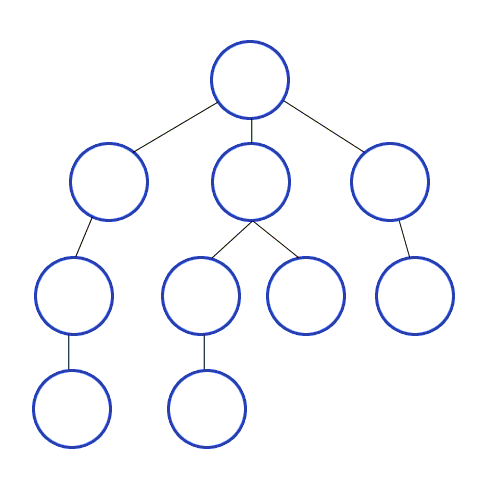Curiosity: The Compass to Meaning
Expanding on the framework for doing great work
I read Paul Graham's essay on How to Do Great Work yesterday. Highly recommend it if you are the ambitious kind.
The key takeaway is to make sure to unapologetically pursue one's interests - one's curiosity. Which, I've come to realize, is what Engineering Sustainable Liberty is all about. More on this later - let's first dive into the what we can learn from Graham.
If you only take away one thing from this piece - let it be this:
To do great work you need to find a topic that is worthy of your extraordinary attention.
Once you find such a subject it will be almost impossible for you _not_ to do great work. And curiosity is your compass that helps you identify the right direction.
How did Newton, Darwin and Jobs find themselves creating new frontiers?
Here's a framework for getting there:
explore generously
go all-in on projects
be persistent
have the humility to backtrack
unapologetically pursue your curiosity
Graham uses the metaphor of a depth-first search algorithm as the process by which you should engage in identifying meaningful topics to spend time on.
"Depth First Search is like exploring a giant maze by walking down one path as far as you can go until you hit a dead end, and then you backtrack to try a different path. You keep doing this until you've explored the whole maze." - GPT 4
Explore Generously
Especially early on, you don't know what subjects will be worthwhile. Don't be afraid to try. You'll notice some things will feel more meaningful than others - stick to those.
It is fine to explore seemingly unrelated subject territories. Great work oftentimes consists of drawing a connection between unrelated fields by recognizing analogous underlying patterns.
Go All-In
Go all-in on the topic you find to be most relevant at any given point in time. Pull all-nighters, build a prototype, obsessively read all the literature you can find. With a little luck you'll reach the frontier of existing knowledge and discover a niche that demands further exploration.
In the worst case you'll have learned the meta-skills of learning and building. Knowledge seldom only applies to a single field - it is usually transferable as metaphor.
Be Persistent
Follow through to completion. Make sure that nothing stops you from walking down a path that you can feel to be relevant.
Social critiques by peers and experts can oftentimes discourage us by asserting the impossibility of our ambitions. You are unlikely to do great work if you listen to such critiques.
If Darwin would have listened to the most powerful institution of his time - the Church - we might still be blind to mechanisms of natural selection in biology and beyond.
Have the Humility To Backtrack
Don't be afraid to take a few step backs if you realize the branch you are exploring is leading you astray. It can be easy to stay fixed on a path once we get start - especially if we've spent significant resources on pursuing it. There is a delicate balance between persistence and self-reflection is a virtue - it probably takes some time to fine-tune it properly.
The resources invested in a branch you decide to backtrack are not wasted as you've improved your knowledge, learning and exploration ability.
Never go back more steps than you have to (same as in depth-first search).
Unapologetically Pursue Your Curiosity
In order to to find a subject that is worthy of your attention you'll have to listen to yourself. No one can tell you what to work on. Relying exclusively on external signals to identify what to work - such as prestige and compensation - without tuning into your curiosity, will make it hard to put in the effort necessary to grant a subject the attention needed to do great work. When you're curious that attention is effortless.
The Freedom to Be Curious
So, how does doing great work relate to the mission of Engineering Sustainable Liberty?
The reason why I want to build a lifestyle of resilient freedom is because I want to be able to fully and unapologetically follow my interests. Whether that being intellectual, physical, social, professional etc...
Being unable to follow one's curious spark is a crime against life.
Your curiosity is a metaphysical phenomenon that guides you towards crevice of reality of most relevance to yourself. There is a reason why a subject is calling you. Follow your curious instinct and you will find meaning.
If you are unable to follow curiosity regularly due to a certain constraint (eg. job, "friends", cheap dopamine) keeping most of your mental resources drained, you'll hit a wall eventually. You'll find yourself lacking meaning - and no one can face the inevitable adversity of life without a sufficiently potent *why*.
The cool thing about curiosity is that it isn't constraint to a single facette of life. Your curiosity can point at ideas, physical exercises or a specific person. It will drive you to grow holistically - and you should pursue all of them at their due time.
Notice curiosity.
Practice curiosity.
Follow curiosity.
Curiosity is the answer. It’s your personal compass that points towards to subject of greatest meaning. Once a meaningful subjects is identified, substantial investments feel effortless, and great work flows naturally.
Trust the process.




